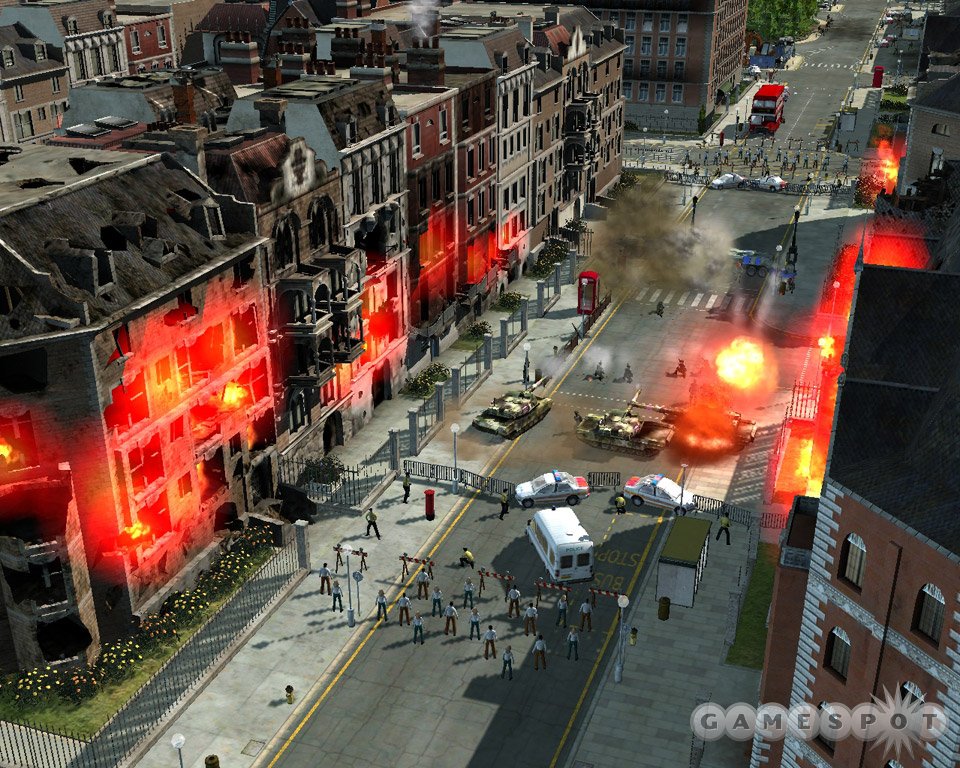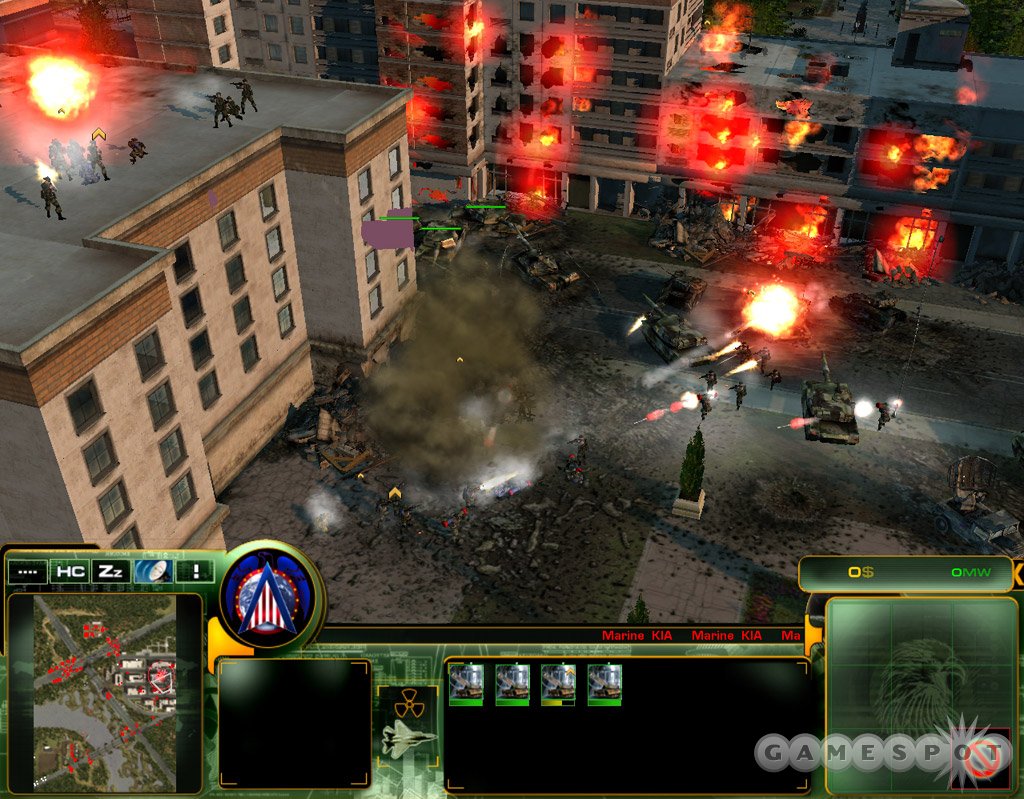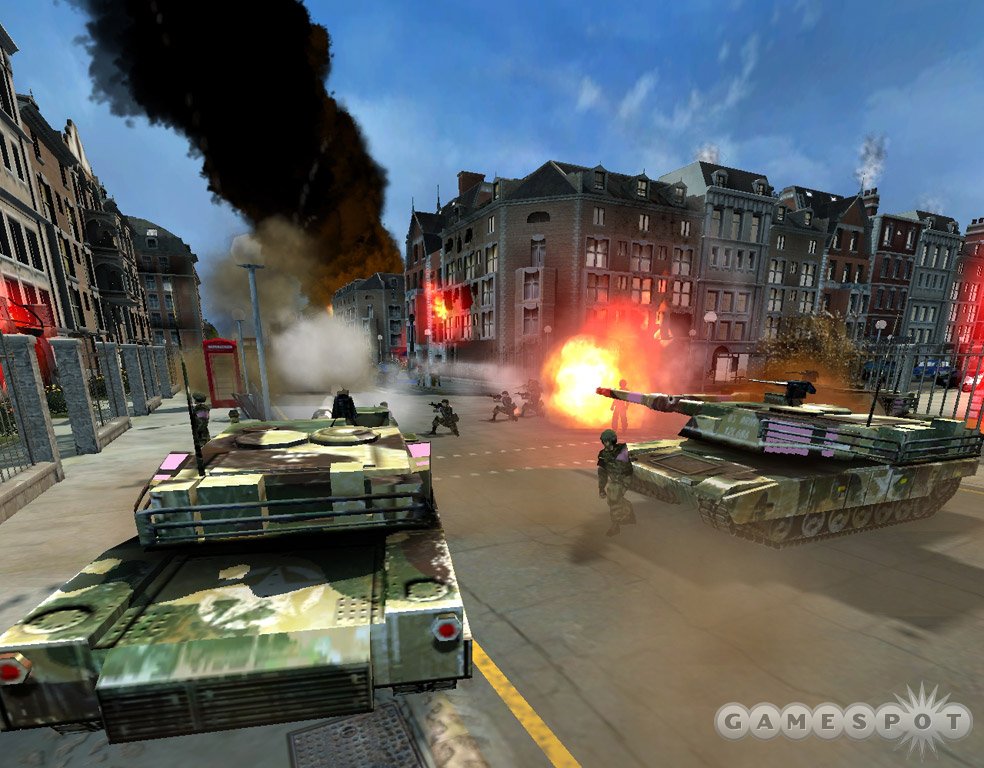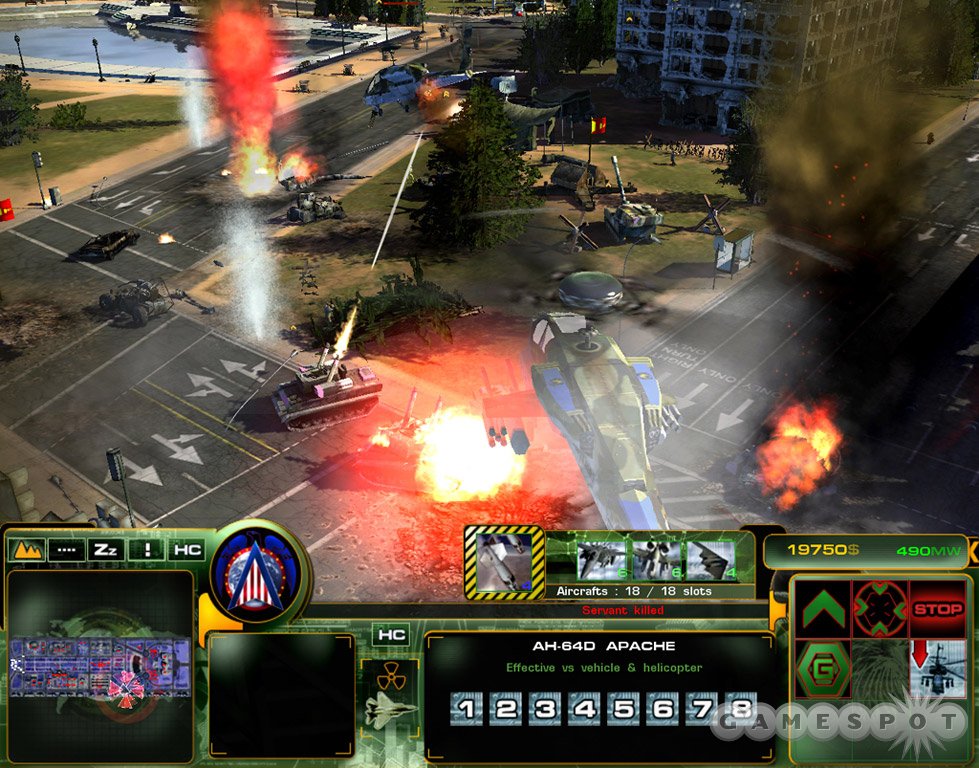Act of War: Direct Action Q&A - Dale Brown
<i>The New York Times</i> best-selling author Dale Brown discusses his involvement in this next-generation real-time strategy game.
The New York Times best-selling author Dale Brown was one of the first major authors of the techno-thriller, the genre of books that explore the potential for high-tech weapons and equipment to transform warfare. As such, he was an ideal partner for Atari and developer Eugen Systems on their upcoming game, Act of War: Direct Action. This techno-thriller of a real-time strategy game is set in the near future and depicts the United States responding to high-tech terrorist assaults on its soil. In addition to helping plot out the game, Brown is coming out with a novel, Act of War, which will flesh out the story in the game even further. We recently had the chance to ask Brown about the game and get some of his thoughts on gaming.

GameSpot: How did this collaboration between you, Eugen Systems, and Atari begin? Who approached whom first?
Dale Brown: I was contacted by my Hollywood agent, Alan Nevins of The Firm Entertainment, and told that Atari was looking for a military thriller writer for an upcoming project.
After working on the Megafortress game project in the past (with publisher Three-Sixty Pacific), I jumped at the chance of developing another game.
GS: In terms of plot, how will the book and game be related? Will one continue the story of the other, or do they take place at the same time and complement one another? Is this a case of a book being based on a game, or a game being based on a book, or something else entirely?
DB: The story I wrote came first, and then the book and the game each branched out on their own simultaneous production tracks. Gamers will find common scenes in the book, and readers will feel very much at home with the game. They are two separate productions, with separate creative talents involved, taking advantage of the different media and different players' and readers' perspectives and experience.
GS: We know you don't want to spoil anything, but can you set up the basics of the plot for us? What's the time frame? Who are the major players? What's going on?
DB: The Hollywood logline might be this: A brash young Army commando and his grizzled veteran mentor are given the impossible assignment of hunting down a shadowy multinational corporation that seeks to destroy rival oil companies around the world.
GS: Aside from being exciting and entertaining, are there any particular themes that you're trying to explore in both the game and the book?
DB: Our joint objective in this project was simple: push the boundaries of current-day military special operations. We wanted a firm foundation in modern-day weapons and tactics, but we also wanted to show what might or could be done with tactics and technology that are in development right now.
GS: Is Act of War set up in the same universe that most of your books are set in? For example, will we see popular recurring characters such as Brad Elliott and Patrick McLanahan show up? Or is it entirely separate from your established universe?
DB: This was a completely separate project with separate characters. The focus from the beginning was for an 18- to 45-year-old target market, which meant we needed mostly younger characters.
However, I wanted to maintain my most popular theme that I employ in my novels: bold, audacious characters, plenty of high-tech gadgets, and plenty of unexpected twists and challenges.

GS: One of the common themes found in some of your previous work is high-tech weapons and equipment, some of which almost seem more science fiction than fiction. Did some of the more exotic weapons and equipment in the game, such as the SHIELD (super high infantry electronic defensive system) unit, come from your imagination, or are they the product of stuff you've seen in development? And how far away are we from seeing such stuff for real?
DB: SHIELD was based on technology in exoskeletons and advanced infantry weapon design that I've researched and used in my novels for years, starting with The Tin Man back in 1999. However, the real-world technology has advanced even faster than even I could imagine, so SHIELD is more fact than fiction now.
I believe we'll see cybernetic soldiers on the battlefield easily before the end of this decade.
From Megafortress to Act of War
GS: What are the different challenges involved in writing a game and writing a novel? Are there any examples that you could share with us?

DB: Both the game and the book started from the original Act of War outline I wrote in 2003. But once Atari and Eugen Systems accepted the outline, they took over gameplay development while I began work on the novel. Screenwriter Susan O'Connor is mostly responsible for the dialogue and scripting for the game itself; I was used mostly in an advisory role.
GS: Other techno-thriller authors have made the plunge to gaming, most notably Tom Clancy. But you beat most of them to the punch way back in 1990 with a flight sim called Megafortress. Were you involved with that very much? Have you been a gaming fan for long? Do you have any favorite genres?
DB: Since Megafortress was based on my first novel, Flight of the Old Dog, the story itself was already written. The game producers, Three-Sixty Pacific, used me to explain technical specifications on all of the weapons in the book; I wrote flight plans for each of the scenarios in both the game and the add-on disks; and I participated in publicity and promotional events.
However, I wasn't a gamer until I met the folks from Atari and saw the original game engine by Eugen Systems. The only games I ever played were Harpoon and maybe Microsoft Flight Simulator, but always with planes I usually flew--Cessnas and Pipers--never exotic planes like the Concorde that I'd never fly. I always went for realism.
GS: This is a bit of a philosophical question, but as a former Air Force officer, pilot, and best-selling author, what are your feelings on the growing connection between the military and games? There are already lots of military-themed games on the market. Meanwhile, the Army now has an official first-person shooter, and the Marines are currently developing their own game, which will be used as a training aid. It seems to make a lot of sense since young people today are digitally aware, but can it go too far? Should there be a balance?
DB: I think ultrarealistic games and simulations are great for the military, and I think the connection will only grow. It will never replace real field training and large-scale exercises, but it will definitely enhance a soldier's skills. There is nothing like feeling a real explosion or live cannon fire to get your attention.
GS: Finally, are you interested in exploring the gaming realm a bit more as an author? Do you see new avenues for storytelling through games?

DB: The two are separate art forms that can do nothing but complement and enhance one another if done correctly. The experience between the game and the book utilize separate and mostly different emotional and mental avenues that create different experiences for the user. I believe Act of War is a perfect example of two separate yet synergistic media experiences that go together perfectly. They can be experienced separately, but for the maximum effect they should be enjoyed together.
I enjoyed working with Atari and Eugen Systems--the creative energy in those two companies is amazing. I hope they invite me back to do many more projects like Act of War, because I really enjoyed the work and creative experience.
GS: Thank you, Dale.
Got a news tip or want to contact us directly? Email news@gamespot.com
Join the conversation